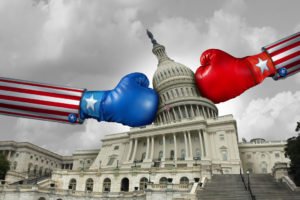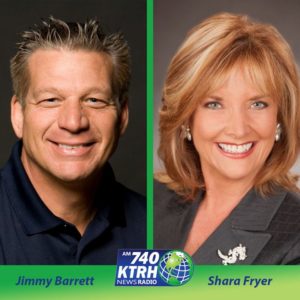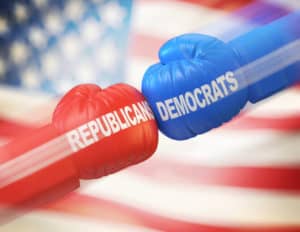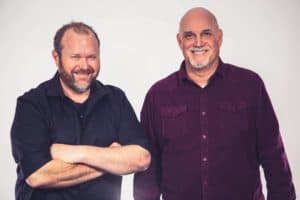As the coronavirus pandemic subsides, businesses like banks, dentists’ offices and universities should receive priority to reopening based on their comparatively low risk of transmission and high economic impact, according to a study produced by a business professor at the University of Texas at Austin.
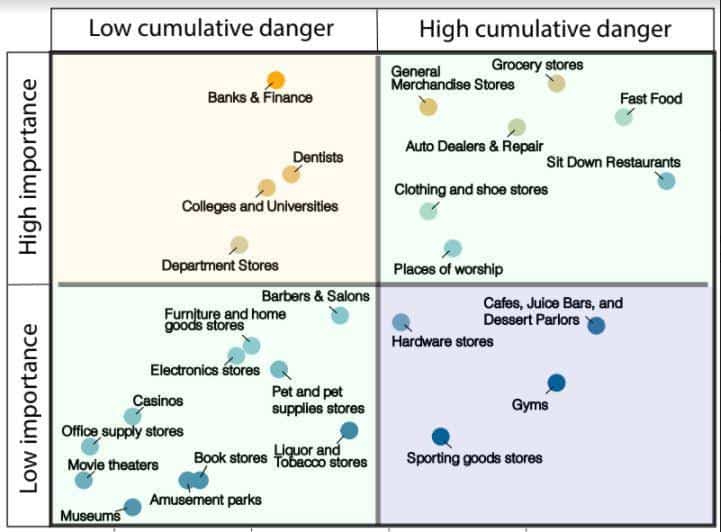
Shortly before joining the McCombs School of Business as an assistant professor, Avinash Collis began working on research using aggregate cellular phone location data from about 47 million cellular devices to study how people were moving amid the pandemic. He conducted the research after he earned his doctorate degree in managerial science at the Massachusetts Institute of Technology.
Collis said he is using the data to help lawmakers better gauge reopening decisions. Government officials around the country have already reopened parts of their economies under local capacity limits, but Collis said data-driven findings can provide lawmakers with insight on what types of businesses should get looser restrictions before others.
“We are not saying when to reopen. That is something which health experts are best suited to answer. But once health experts decide it is safe to reopen and are thinking about which way to go first, then you could use this data,” Collis said.
Collis said the study tried to weigh the danger of transmission among 26 different categories of businesses against their importance based on economic significance and consumer perception.
To determine the danger of transmission in the different businesses — ranging from banks and finance to grocery stores and gyms — Collis said researchers looked at nine measures, including total unique visitors and the number of hours a person shared a 6-foot space with others at a given location.
“We also looked at what percentage of tasks by employees at each physical location required contact,” he said.
In addition, researchers gauged the economic impact of a business by analyzing its workforce and revenue contribution. Researchers also conducted a survey of 1,099 U.S. residents that collected information about which types of businesses they deemed important when compared to others.
Collis and researchers then looked at the risk level of reopening businesses in each of the categories and compared it to survey respondents’ opinions of how essential each business is.
Collis said data analysis from April to May showed that banks, financial institutions, dentists’ offices, department stores, colleges and universities had lower risks of transmission and were considered highly important.
By comparison, Collis said the study showed that the danger of transmission was high at hardware stores, gyms, sporting goods stores and cafes, adding thatsurvey respondents deemed these categories less important than others.
Researchers said businesses like electronics stores, movie theaters and amusement parks were deemed less important than others, but also harbored lower levels of risk of transmission.
Others, such as grocery stores, sit-down restaurants and clothing stores were deemed very important, but had high risks for transmission, researchers said.
Collis added that the analysis could be used by decision-makers to weigh the potential risks and rewards of reopening a business once public health officials feel it is safe to do so.
“Basically before COVID-19, social contact was free. You could go use it as much as you wanted, but now you have a budget of contact and you use it wisely. So you ration your social contact and you use it when you absolutely need it,” Collis said.https://4b8d7d0d14212b437ba74b4cadabbc2a.safeframe.googlesyndication.com/safeframe/1-0-37/html/container.html
Collis said it’s important to note about the study is its limitations, notably in scope. He said he is planning more surveys and research to track people’s confidence to reengage in certain activities.
“This research is looking at the cumulative level, let’s say the whole state or the whole country, but it’s not talking about the individual level,” Collis said.
Collis also said he thinks the analysis and science behind lawmakers’ decisions to reopen should be more transparent.
“None of these states have put out an analysis for why they decided to put one particular location in lockdown while leaving others open,” Collis said.
Texas House Speaker Dennis Bonnen, who has been part of Gov. Greg Abbott’s special task force for reopening Texas’ economy, told the American-Statesman that the group has not used mobile device data in the past to make reopening decisions.
Bonnen said the challenge when considering new research is ultimately to figure out how science and academic studies can fit into policy at the local level.
“Putting science and academics into the real world is when sometimes — not always but sometimes — it starts to fall apart. It’s creating the balance between the academic and scientific research he has done with the practicality of putting it into place,” Bonnen said.


